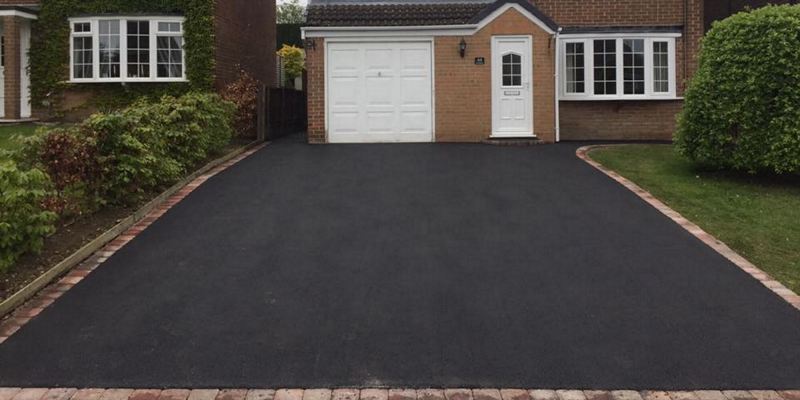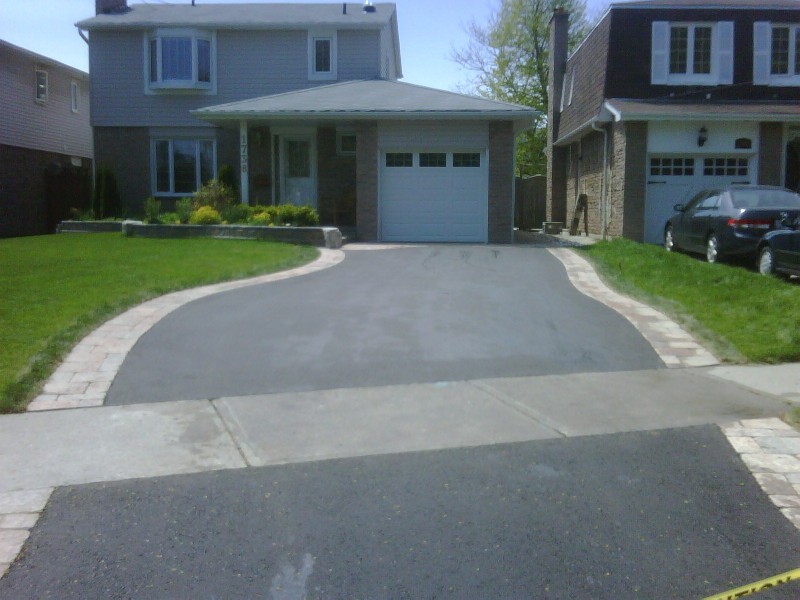Using either concrete or asphalt for a driveway makes good sense. Both are excellent choices, although both have pros as well as cons to them.
Things that you should consider before making a choice include maintenance, budget, appearance, and climate.
Both types of driveway must have a solid base to work on. This means that you need to dig out several inches of soil and company it so that it is firm and will not subside under the topping.
Both concrete and asphalt need time to cure and you should allow for up to a week, perhaps longer in hot weather before you can safely drive on it. If not, it will crack and need to be relayed.
Let’s look at these points
Maintenance

Asphalt will need to be resealed every 4-5 years while concrete will last without any significant repair work for up to 40 years, sometimes longer.
Concrete may need to be cleaned and degreased to keep looking smart. Asphalt does not have this issue.
Budget

Asphalt will set you back a little more than concrete with a 40 square metre drive in asphalt costing around £3,000 and a 50 square metre concrete driveway costing about £2,500. These estimates were used by contacting different companies like Bullerdriveways.com and asking them for pricing.
You must also factor in the cost of clearing the driveway and compacting it before applying the concrete or asphalt. This will vary from region to region.
Unless you have somewhere else to lay the cleared earth, you will need a skip to remove it.
Appearance

Asphalt comes in one colour – black, like the roads you drive on. Concrete can come in several different colours.
Asphalt should be sealed every 3 years to repel water. Water does the most damage to asphalt so this is an important consideration.
Concrete can also be sealed although not essential. Concrete does however tend to crack, and these must be repaired to prevent further damage. It is harder to repair concrete than to reseal asphalt.
Climate considerations
In very high temperatures asphalt may soften and you will need to keep the car and children off it until it hardens again. While high temperatures do not happen that often in the UK, there are some summers which are extremely hot, and your driveway may soften.
Concrete will work very well in high temperatures but may crack in extremely cold temperatures. Northern parts of the country may well find cracks after severs winters.
To sum up
Before laying your driveway, you should consider the area you live in. Northern parts of the country may be better with asphalt drives while southern, warmer areas may be more suited to using concrete.
At the end of the day, the choice of either asphalt or concrete is a personal one, depending on your own budget, house style and likes and dislikes.
It is a good idea to take a walk around your neighbourhood and see what other people have done. Talking to them will show you what has worked and what to avoid. You will also find out the best companies to use and those to avoid.






